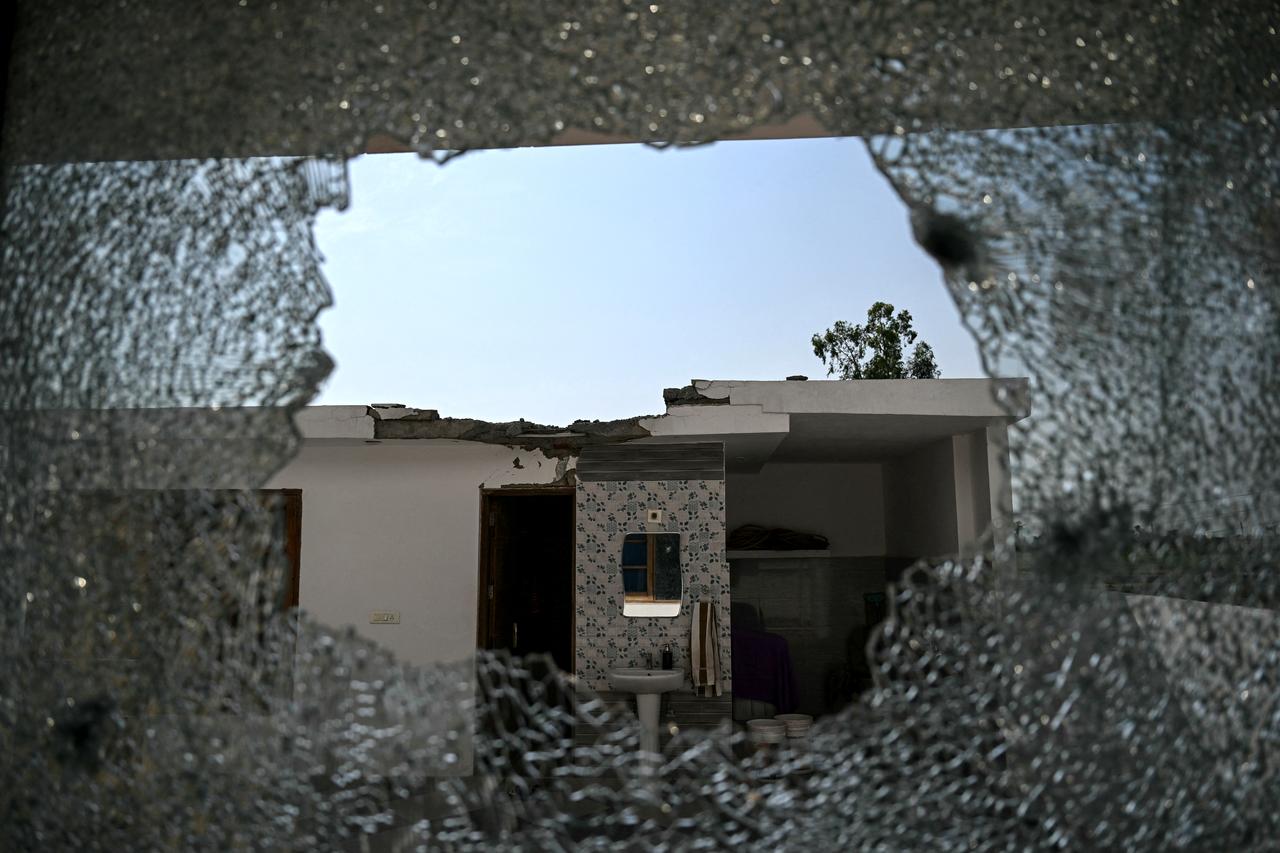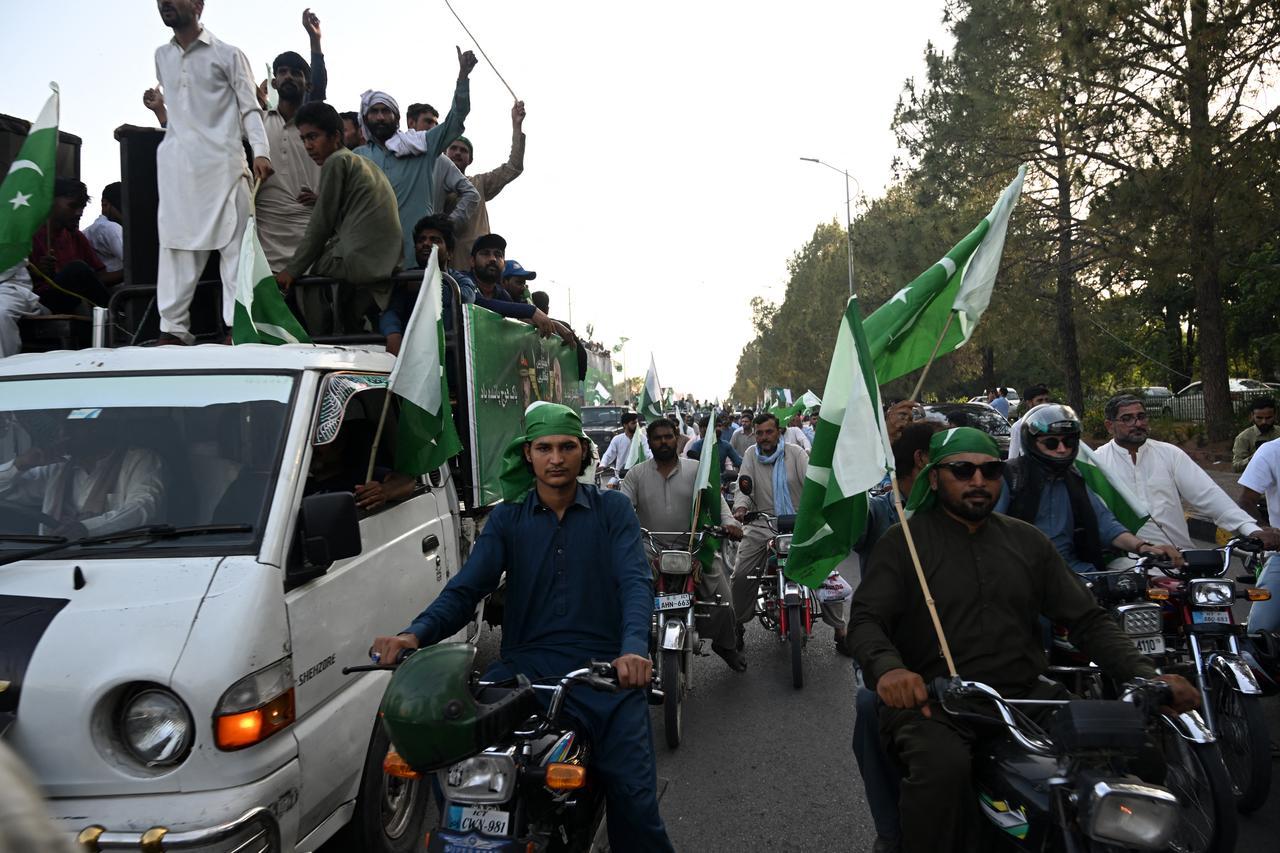
India on Saturday accused Pakistan of violating a newly agreed cease-fire just hours after both sides declared an end to four days of escalating cross-border clashes, prompting fears that the truce may be unraveling as quickly as it began.
An Indian government source told AFP that “Pakistan violates the bilateral agreement with India,” as explosions were heard in Srinagar, the capital of Indian-administered Kashmir. Residents and officials also reported blasts and projectiles lighting up the night sky in Jammu, another key city in the restive region.
“What the hell just happened to the cease-fire? Explosions heard across Srinagar!!!” former Jammu and Kashmir Chief Minister Omar Abdullah posted on X.
The cease-fire, which was announced after heavy diplomatic pressure from the United States and other countries, had been scheduled to take effect at 5:00 p.m. Indian Standard Time.
Despite the declarations, the blasts in Kashmir cast doubt on the immediate future of the agreement. Military officials in both India and Pakistan did not immediately respond to requests for comment, according to Reuters.
India on Saturday stated that Pakistan had repeatedly violated ceasefire agreed between them just hours earlier and that it was retaliating, after days of military confrontation between the nuclear-armed neighbours.
India's foreign secretary Vikram Misri announced Saturday there had been "repeated violations" and that the "armed forces are giving an adequate and appropriate response to these violations."
Meanwhile, Pakistan rejected India's claims early Sunday stating that it "remains committed to faithful implementation" of the cease-fire it has agreed to with India, after New Delhi accused it of violating the truce and said it was retaliating.
Accusing India of committing its own violations, the Pakistani foreign ministry said its forces "are handling the situation with responsibility and restraint."
"We believe that any issues in smooth implementation of the ceasefire should be addressed through communicationat appropriate levels. The troops on ground should also exercise restraint," the statement continued.
U.S. President Donald Trump earlier hailed the cease-fire as a breakthrough, saying India and Pakistan had agreed to a “full and immediate” halt to all military activity on land, air, and sea following “days of intense fighting.”
The truce followed a sharp escalation that began Tuesday with Indian airstrikes on what New Delhi claimed were terrorist targets inside Pakistan. Pakistan responded with retaliatory strikes on Saturday morning.
Pakistani Foreign Minister Ishaq Dar confirmed the agreement in a post on X, writing: “Pakistan and India have agreed to a cease-fire with immediate effect. Pakistan has always strived for peace and security in the region, without compromising on its sovereignty and territorial integrity.”
Dar also credited foreign ministers from Türkiye, Saudi Arabia, the United Kingdom, and other nations for playing a “key” role in brokering the cease-fire.
Indian Foreign Secretary Vikram Misri said senior military officials from both sides reached the agreement in a call Saturday afternoon.
“The Director General of Military Operations of Pakistan called the Director General of Military Operations of India at 15:35 hours,” Misri said. “It was agreed between them that both sides would stop all firing and military action on land, in the air, and at sea with effect from 17:00 hours Indian Standard Time today.”
He added that the directors general of military operations would speak again on May 12 to review the situation.

Indian Foreign Minister Subrahmanyam Jaishankar later posted a statement reaffirming India’s counterterrorism priorities: “New Delhi has consistently maintained a firm and uncompromising stance against terrorism in all its forms and manifestations. It will continue to do so.”
Shortly after the cease-fire announcement, Pakistan reopened its airspace to all civilian and military flights, according to the Civil Aviation Authority.
U.S. Secretary of State Marco Rubio praised both countries for their restraint. “Wisdom, prudence, and statesmanship in choosing the path of peace,” he wrote on X.
Rubio added that he and Vice President Vance had engaged in high-level talks with Indian Prime Minister Narendra Modi, Pakistani Prime Minister Shehbaz Sharif, Indian National Security Advisor Ajit Doval, Pakistani Army Chief Gen. Asim Munir, and others over the past 48 hours.
“I am pleased to announce the Governments of India and Pakistan have agreed to an immediate cease-fire and to start talks on a broad set of issues at a neutral site,” Rubio wrote.